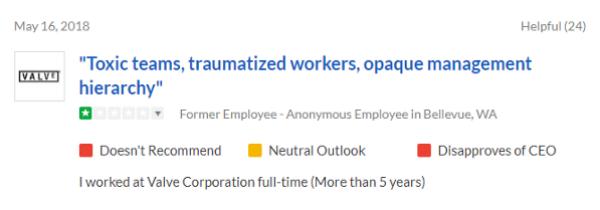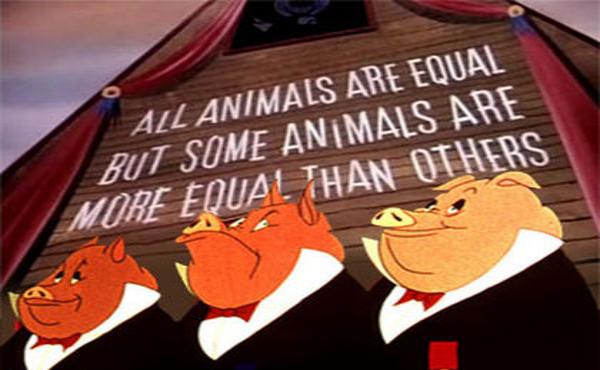What a game company tells us about democracy
Hyerarchies cannot be eliminated. With or without software.
Valve is (or was in 2018, at least) “arguably the world’s most powerful gaming company… Getting a job at Valve was a gamer’s dream”. Let’s see why.
How Valve says it works
“Imagine a company where EVERYONE IS EQUAL AND MANAGERS DON’T EXIST. A place where employees sit where they want, choose what to work on and decide each other’s pay. Then, once a year, everyone goes on holiday together”: You have just imagined Valve.
How Valve really works

HYERARCHY??? Hey, wait a minute...
</em></u>
A 2018 article about Valve’s self-organizing “utopia” describes how things really work at Valve. One really interesting part is this:
“One thing that does bother you is how incredibly anxious people seem… Your colleagues move around in cliques."
This really sounds just like the whole world of today’s social media, whose only purpose is to “maximize your behavior” for their own profits, doesn’t it? I need to think about that more.
The core part and lesson of how Valve works, however, is this:

“while everyone is supposed the same… others are more equal than others. You call them “barons”, often those who have been around for a long time, hang out with the corporate arm, and calls the shots at the end of the day. They have “followers” who stick to them to survive… Turns out, flat simply means the hierarchies hide beneath the surface. To survive you have to take sides or risk being taken down by a rival development team."
The morale?
If things at Valve go as described in that piece, the conclusion is obvious:
Everything should be as simple as possible. But not simpler.
Both in companies, and in society.
Real accountability, real inclusion, active participation, transparency,open data… yes, of course! The more the better.
But hyerarchies cannot be eliminated. Not above a certain (low) level: not all flat organizations are bad but “The challenge lies in scaling up”. Today, society is too complex, and must face challenges too big (globalization, inequality, pollution…) to go really flat at anything… maybe above the family level.
Hyerarchies cannot be eliminated, and going digital, be it Facebook, Github or any other “p2p-only” platform cannot change this at all.
What is ironic is that we all knew this, or should have, for a long time:
[quoting from the same article] In 1970, Jo Freeman described problems in the feminist activism movement that “uncannily parallels working conditions at Valve”, as well as the situation in the Occupy Wall Street movement.
For much more of the same, just read the “No Power Here - No Democracy Either” (and then the whole text) of “Why Utopian Communities Fail”, which shows that even “abandoning” society doesn’t solve anything at all, in the long run. We are all in this together.
Last but not least, some homework for all readers
Homework 1: the article include this quote by Diem25 co-founder Yanis Varoufakis: “Valve is a private company with a horizontal management structure, but owned mostly by few individuals… In that sense, it is an enlightened oligarchy”. Assignment: find real political parties worldwide with the same characteristics of Valve.
Homework 2: speaking of Diem25… compare the limits of “strucureless” platforms and governance models with this and this issues I found in Diem25’s Green Paper on Technological Sovereignty.
Who writes this, why, and how to help
I am Marco Fioretti, tech writer and aspiring polymath doing human-digital research and popularization.
I do it because YOUR civil rights and the quality of YOUR life depend every year more on how software is used AROUND you.
To this end, I have already shared more than a million words on this blog, without any paywall or user tracking, and am sharing the next million through a newsletter, also without any paywall.
The more direct support I get, the more I can continue to inform for free parents, teachers, decision makers, and everybody else who should know more stuff like this. You can support me with paid subscriptions to my newsletter, donations via PayPal (mfioretti@nexaima.net) or LiberaPay, or in any of the other ways listed here.THANKS for your support!